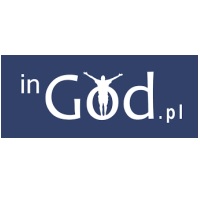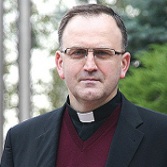NPD Bible endorsements
Find out what experts say about New Dynamic Translation
NPD is the most non-religious and Christ-centered Bible translation I have encountered so far.
Krzysztof W.
Krzysztof W.
NPD is a translation that perfectly illustrates the true character of God.
Henryk K.
Henryk K.
After reading the NPD, I am so uplifted and encouraged that it is difficult for me to return to the other translations of the Holy Bible.
Rafał Ż.
Rafał Ż.

I really like the style, vocabulary and theological interpretations of the “Letter to the Colossians” (NPD).
Prof. Rev. Krzysztof Bardski, Ph.D.
Head of the Department of Biblical Studies
at Cardinal Stefan Wyszyński University
Expert of Humanities at the National Science Center
at Cardinal Stefan Wyszyński University
Expert of Humanities at the National Science Center
*

In the new translation of the “Letter to Colossians”, other than its modern form, the Editorial Team has strived to preserve the dignity reserved for any biblical text. This effect was not achieved through references to the archaic features of the traditional Polish biblical language, but through the contemporary language in its general and literary forms, all while ensuring the most dynamic rendering of the original language’s spirit, culture, and mentality. The integral part of this method incorporates rather extensive commentaries on specific passages from the main text. They include a large amount of theological, philological, and cultural data presented in an accessible way. The Editorial Team has done their best to faithfully reflect the primary message of the book while providing the clarity of the inspired Word for the contemporary Polish readers. This approach meant reaching out for those resources within the Polish language which best reflect the lexical, phraseological, and syntactic forms belonging to the Polish biblical language.
Prof. Stanisław Koziara, Ph.D.
Department of Applied Linguistics
and Social Communication
Pedagogical University of Kraków
and Social Communication
Pedagogical University of Kraków
*

The New Dynamic Translation of the “Books of Psalms” is among the best in the Polish language. It communicates the message in a clear, natural, and accurate way while preserving its poetic, artistic and down-to-earth style. What we have here is a very good representation of the original.
prof. Andrzej Zaborski, Ph.D.
Institute of Oriental Studies
of the Jagiellonian University
of the Jagiellonian University
*

The publishers of the New Dynamic Translation of the “Book of Psalms” successfully managed to find a kind of modus vivendi between the dignity of the inspired book and the necessity to preserve the original message of the biblical psalmody while not compromising its artistry and today’s communicativeness. In this respect, the new translation of the Psalms managed to avoid solutions that are too experimental while preserving many features characteristic for the Polish psalter language. It also managed to borrow from those elements of the contemporary Polish language which are too often “polluted” by excessive colloquiality.
Prof. Stanislaw Koziara, Ph.D.
Department of Cultural Linguistics
and Social Communication
of the KEN Pedagogical University
in Cracow.
and Social Communication
of the KEN Pedagogical University
in Cracow.
*

The New Dynamic Translation of the “Book of Psalms” departs from the idea of using linguistic archaisms and “magical words" that are usually incomprehensible to the average reader. Its main feature is the ease of understanding. This translation perfectly combines two basic approaches: philological (loyalty to the original text, including poetic structures) and communication (understanding and evaluation of the text in the way the readers of Hebrew do). This is the undeniable value of the new translation. The “Book of Psalms” in this translation show their vitality and universal character even more vividly. They reach modern readers, giving them not only a sense of stability, power, trust or care, but also: faithfulness to the original version, its diligence, beauty of language, clarity and usefulness. The adoption of a communication approach brings about a popular translation intended for the average reader, as opposed to specialized translations – literal ones – that sometimes sound incomprehensible and require footnotes and explanations.
Maria Kantor, Ph.D.
Member of the Polish Biblists Association
translator and Bible promoter
Jagiellonian University
translator and Bible promoter
Jagiellonian University
*

Publication of the “Book of Psalms” in the so-called dynamic translation is a unique literary event. As it seems – the translators managed to achieve something unprecedented – reconciling two contradictory paths of translation – caring for the most faithful rendering of the original and preserving the beauty and lyricism of the same. And all while modernizing and simplifying the biblical language, so that it would be more comprehensible for the average recipient, without losing its seriousness or infantilization. Translators, linguists and literary theorists have always discussed the question of what faithfulness of the text is. Is a faithful translation one that literally reflects the letter of the original? Or maybe one that captures its “spirit" – atmosphere, poetics, imagination. What about the cultural context? Is a joke, a metaphor, a play on words to be understood in such a way that it is understandable for a reader coming from another country, or is it better to keep it intact for the sake of clarity of language? – To all these questions no one has yet found an answer, and the practical solution to these dilemmas depends on the translator’s talent, his or her linguistic perception and – let’s face it – the “translation philosophy" that is close to him / her. In the case of the Holy Bible, the translation presents, as it seems, even a greater challenge. Too serious a departure from the original record in the name of preserving the beauty of language could open the door to the most bizarre interpretations of the text, and thus contaminate the purity of the message. Therefore, work on new translations of the Bible is always extremely tedious and takes a long time. The New Dynamic Translation of the “Book of Psalms”, which was recently published by Vocatio, is truly unique in terms of language. Although I cannot speak about the literalness of the translation, I believe the experts in this field, professors of linguistics, whose opinions are unequivocally flattering. However, I can say something about a language whose both simplicity and at beauty, have revealed the Psalms to me again not only as one of the inspired books, but also as a wonderful, poetical work filled with emotions. I must admit that – although I am a theoretician of literature – for many years I have read the Psalms in a quite “utilitarian" way. I extracted logos and rhema from them, but while still dealing with the same text, I lost its aesthetic taste. Thanks to the new edition, I fell in love with this poetry, and thus the Word contained in it, with a new fervor. And for that I am would like to express my deep gratitude to all who worked on developing this extremely difficult text.
Dominika Mazur
www.portalcel.pl
*

The New Dynamic Translation of the “Book of Psalms” published by VOCATIO is certainly a new perspective on the prayer which our elder fathers have been lifting up for generations, and which Christ himself prayed. What speaks in a special way when reading and meditating on the Word is God’s Name, which is always written using capital, printed letters. The rich footnotes on individual verses which deepen the understanding and expand on the meaning of words and phrases they contain are also very valuable. This translation is also clear and easy to understand. Today, despite the multitude of Bible translations, it is really hard to balance the faithfulness to the Hebrew text with its user-friendliness and ease of understanding. Many texts are either too difficult to read and meditate on or do not faithfully render the Hebrew meaning. In this case, the balance has been preserved in the right proportions, which not only encourages one to study the Psalms even more frequently, but also lets the entire family read the Bible together. It pleases us all the more that in the era of general secularization there goes on struggle as to the foundation of the family being the first community of life, and at the same time the basic tool for new evangelization. The audio version of the “Book of Psalms” brings a lot of joy as well, as it helps those who, for various reasons, have no time to study God’s Word.
This is also appreciated by disabled people who are often left out when in such projects.
I would wish for all publishers on the Christian market to reach such a high standard with the projects they undertake that will translate into excellent quality, wide target group, professionalism and, above all, a testimony of a living faith. I recommend it from the bottom of my heart.
This is also appreciated by disabled people who are often left out when in such projects.
I would wish for all publishers on the Christian market to reach such a high standard with the projects they undertake that will translate into excellent quality, wide target group, professionalism and, above all, a testimony of a living faith. I recommend it from the bottom of my heart.
Karol Sobczyk
InGod.pl portal
*

In Christian churches, Psalms are the foundation for many services. They liven up the liturgy and enrich individual godliness. Counted among lyrical prayer songs, they are sublime in their character. Because God is the number one recipient of the psalms’ contents, it is perfectly understandable that they express thankfulness, pleas, repentance, prophecies, praises, patriotism, and mourning. Each of these seven kinds can be found in the new translation of the “Book of Psalms” which is part of the project comprising the translation of the entire Scripture into contemporary Polish. NPD – the New Dynamic Translation meets the demands and expectations of the times we live in. It is not without reason that this is one of the most often translated books of the Bible and into many languages. Being a book of prayers of the Chosen People, Jesus Christ, the apostles and followers as well as of the entire Church, it has not lost its relevance. The translation of the publication offered to readers was prepared on the basis of a translation from Hebrew, which has a fundamental impact on the faithfulness in conveying the original content. In spite of the considerable freedom in terms of the vocabulary used (this is impacted by the difference in the number of words present in modern languages and used in the Hebrew Bible in the original which is just over five thousand), the basic thought of the saving message is absolutely intact. Portions that are clear were translated literally, while those that were conceptual and thus harder to grasp were replaced with semantic equivalents. The titles of individual psalms have also been adapted to accommodate modern readers. The editing team remained faithful to the Jewish tradition, in which the Psalter is divided – similarly to the Pentateuch – into five books. In each of them they left exactly as many psalms as there are in the “Hebrew Psalter”. They kept the numbering order, opting out of the numerical differences concerning the Hebrew and Greek Bible. The “Book of Psalms” published by VOCATIO is a great textbook of biblical prayer that will be welcomed by the average Bible reader. Because the call to holiness has a universal character and destiny, everyone – without exception – can take advantage of the new, dynamic translation. The thoughts contained in the psalms will undoubtedly bring spiritual benefits to the readers by bringing them closer to God, teaching them to hope in God and live according to His will.
portal Granice.pl
*

In the history of exegesis there have been many translations of this most poetic and prayerful book of the Holy Bible – the “Book of Psalms”. In fact, the search for the “golden mean" is still on to reach its “full sense" (expressive and spiritual). Here, perhaps, the words of the Pontifical Biblical Commission – repeated in Verbum Domini – work best, and that is that “the biblical text can only be properly understood by the one who himself lived through what the text says" (IBK II, A, 2, VD 30). To this extent, spiritual life, prayer and knowledge of the hermeneutics of the biblical translator are emphasized. How it’s received by modern readers is also important. How do they react to the translation? Does it aid them in their prayers or does it hinder their prayers? Do they willingly reach for it or are they looking for another translation? Sometimes “as the life of the reader of inspired texts grows stronger, the understanding of the reality that these texts speak about deepens" – explains the document of the Pontifical Biblical Commission. Today, more and more often lay people, members of religious groups, movements and associations – encouraged by beautiful catechesis on the Psalms by two popes, Pope John Paul II and Benedict – willingly pray individually or in communion with the Liturgy of the Hours. I am pleased, therefore, that there are bold translations done by not only clerical specialists in exegesis and poets or writers, but also by linguistically well-prepared lay people, whose depth of authentic spiritual and ecclesial experience promotes a better understanding of the Word of God.
Rev. Jan Kochel, Ph.D.
Lecturer at the Faculty
of Theology at the University of Opole
of Theology at the University of Opole
*

I am touched. Beautiful words, soothing music … When I listened to Psalm 23, Jan Kochanowski’s “Psalter” came to mind. It has been said that that the Bible should be simple, raw and rough, so that the translation would be reliable and it could even be called God’s Word. Wrong! God is a poet and He likes poets, and what is the world, if not a brilliant poem? This is a translation for the discerning, for those seeking not only the revealed truth, for those who believe that – as Dostoyevsky used to say – “Beauty has saved this world."
Irena Kanicka
editor
*

(…) Psalms are poems, and poems are intended to be sung (…) Most emphatically the Psalms must be read as poems; as lyrics, with all the licences and all the formalities, the hyperboles, the emotional rather than logical connections, which are proper to lyric poetry. They must be read as poems if they are to be understood; no less than French must be read as French or English as English. Otherwise we shall miss what is in them and think we see what is not. (C.S. Lewis – Reflections on the Psalms, Esprit 2011).
And how do we read the Psalms or secular poetry? Accustomed to life in the fast lane, we skim over the text, we are in a hurry, we put reading off for later. While, in the case of ordinary poetry, it can be forgiven (humanists would probably strangle me for such words, and I would do it myself, because poetry requires concentration, but I cannot change reality), so in the context of the Psalms, this kind of procrastination is inexcusable. And here the question arises: how? It is not easy for an ordinary person to read the Psalms fully, read them as poetry, as lyrics – “with all the licences and all the formalities, the hyperboles, the emotional rather than logical connections, which are proper to lyric poetry” to quote C.S. Lewis again. Perhaps we are unable to read and sense the fullness of the content of the given Psalm, but for centuries artists have been aiding us in this process. Andrzej Seweryn, a well-known actor, has tackled this difficult task. He has taken the Psalter in his hands and interpreted it with his voice. And he’s not in a hurry to finish. He puts all of himself into this work as befits a real, pure-blood artist. The fruit of this is the “Book of Psalms” in the New Dynamic Translation. Dynamic, meaning non-literal, using a large amount of biblical research, facilitating the understanding of explicitly given content, devoid of complicated syntactic formulas. We know the Psalms because they are discussed in schools, we hear them on television, on the radio, in our churches. They are always handy, because all we have to do is open the Holy Bible between the “Book of Job” and the “Book of Proverbs” and we will see words full of emotions ranging from joy to cursing, having a cleansing role and transferring all of the reader’s anger into David’s words. We know the Psalms, but what Andrzej Seweryn did is … is simply a masterpiece! A unique interpretation combined with music and the sounds of nature. In the background we hear thunder, the sound of the sea, instruments. I do not know much about music, but I would not be surprised if the instruments were stylized to resemble the ones from that era. In the dim light, when the house is all quiet, you can imagine David speaking to God, the hands of the psalmist raised up. We picture the feast of thanksgiving, a lightning strike, the top of the mountain. Seweryn’s interpretation and the influence of music influence the imagination very much. Incorporating tracks (recorded on the CD in .MP3 format, so copying them to the phone is rather simple) evoked in me the feeling of listening to a timeless story full of greatness, dignity, and significance. I felt it was a great story, one of those stories that have been stuck within man for centuries and which we dream about. Suddenly I realized that all of it was true, that I believe in it, that it is not fictional, it is the truth in which I believe, I want to believe and I can believe without any fear. People have been fascinated by epics, songs, lyrical reality for centuries. The Psalms encompass all of the features of these timeless stories with one exception – it’s not fiction, it is the truth that make up our faith. We know from the Holy Scriptures that the Word of God is alive and that it does not return to God until it produces fruit. In each of us, the Psalms will work differently. In the “Psalter”, Andrzej Seweryn was able to reproduce the authentic emotions of David and other psalmists, he wanted to open us as much as possible to the content of the words of the Psalms, he wanted to awaken in us the words of God planted in us. In his interpretation you can hear pain, suffering, but also joy or gratitude. You hear words filled with loneliness and the remedy for this broken relationship with God. I can already imagine listening to these Psalms with my headphones on when I am on the bus, on the train, on the way home, to work or on a walk through the woods. I imagine listening to inspired songs early in the morning, when the sun rises, at sunset, but also in a dark room, when the thoughts stay put, and the eyes cease to wander. All you need is some space on your memory card and a pair of headphones. It will not be tedious, because the Word of God always works differently in us, and the same verse can strike a different chord every time we hear it, no matter how many times. The Bible grows with each person individually, drawing from his or her experiences, state of mind and emotions. It is with us until death, but it does not die (just like us, filled with the Living Word, we go to Eternity). Therefore, the “Book of Psalms”, which is a part of the Bible, also works differently for us. Deep and majestic voice of Andrzej Seweryn, music, over 7 hours of songs in MP3 format, new translation and co-financing of the project by the Ministry of Culture. I recommend it from the bottom of my heart.
And how do we read the Psalms or secular poetry? Accustomed to life in the fast lane, we skim over the text, we are in a hurry, we put reading off for later. While, in the case of ordinary poetry, it can be forgiven (humanists would probably strangle me for such words, and I would do it myself, because poetry requires concentration, but I cannot change reality), so in the context of the Psalms, this kind of procrastination is inexcusable. And here the question arises: how? It is not easy for an ordinary person to read the Psalms fully, read them as poetry, as lyrics – “with all the licences and all the formalities, the hyperboles, the emotional rather than logical connections, which are proper to lyric poetry” to quote C.S. Lewis again. Perhaps we are unable to read and sense the fullness of the content of the given Psalm, but for centuries artists have been aiding us in this process. Andrzej Seweryn, a well-known actor, has tackled this difficult task. He has taken the Psalter in his hands and interpreted it with his voice. And he’s not in a hurry to finish. He puts all of himself into this work as befits a real, pure-blood artist. The fruit of this is the “Book of Psalms” in the New Dynamic Translation. Dynamic, meaning non-literal, using a large amount of biblical research, facilitating the understanding of explicitly given content, devoid of complicated syntactic formulas. We know the Psalms because they are discussed in schools, we hear them on television, on the radio, in our churches. They are always handy, because all we have to do is open the Holy Bible between the “Book of Job” and the “Book of Proverbs” and we will see words full of emotions ranging from joy to cursing, having a cleansing role and transferring all of the reader’s anger into David’s words. We know the Psalms, but what Andrzej Seweryn did is … is simply a masterpiece! A unique interpretation combined with music and the sounds of nature. In the background we hear thunder, the sound of the sea, instruments. I do not know much about music, but I would not be surprised if the instruments were stylized to resemble the ones from that era. In the dim light, when the house is all quiet, you can imagine David speaking to God, the hands of the psalmist raised up. We picture the feast of thanksgiving, a lightning strike, the top of the mountain. Seweryn’s interpretation and the influence of music influence the imagination very much. Incorporating tracks (recorded on the CD in .MP3 format, so copying them to the phone is rather simple) evoked in me the feeling of listening to a timeless story full of greatness, dignity, and significance. I felt it was a great story, one of those stories that have been stuck within man for centuries and which we dream about. Suddenly I realized that all of it was true, that I believe in it, that it is not fictional, it is the truth in which I believe, I want to believe and I can believe without any fear. People have been fascinated by epics, songs, lyrical reality for centuries. The Psalms encompass all of the features of these timeless stories with one exception – it’s not fiction, it is the truth that make up our faith. We know from the Holy Scriptures that the Word of God is alive and that it does not return to God until it produces fruit. In each of us, the Psalms will work differently. In the “Psalter”, Andrzej Seweryn was able to reproduce the authentic emotions of David and other psalmists, he wanted to open us as much as possible to the content of the words of the Psalms, he wanted to awaken in us the words of God planted in us. In his interpretation you can hear pain, suffering, but also joy or gratitude. You hear words filled with loneliness and the remedy for this broken relationship with God. I can already imagine listening to these Psalms with my headphones on when I am on the bus, on the train, on the way home, to work or on a walk through the woods. I imagine listening to inspired songs early in the morning, when the sun rises, at sunset, but also in a dark room, when the thoughts stay put, and the eyes cease to wander. All you need is some space on your memory card and a pair of headphones. It will not be tedious, because the Word of God always works differently in us, and the same verse can strike a different chord every time we hear it, no matter how many times. The Bible grows with each person individually, drawing from his or her experiences, state of mind and emotions. It is with us until death, but it does not die (just like us, filled with the Living Word, we go to Eternity). Therefore, the “Book of Psalms”, which is a part of the Bible, also works differently for us. Deep and majestic voice of Andrzej Seweryn, music, over 7 hours of songs in MP3 format, new translation and co-financing of the project by the Ministry of Culture. I recommend it from the bottom of my heart.
Dariusz Okoń
*

As we are involuntarily part of the sounds of the hustling world, we sometimes try, albeit with little success, to extract the subtle notes of beauty. In them, we seek solace against the ever-present clatter. And when, in this noisy rhythm of the day, we find delicate sounds wrapped in the depth of the Word, and we open our ears to the Song of the Lord, we will discover the One who “is the source of our life and the light of our knowledge.” I recommend to all those, who want to relax after work while listening to the Word. Thank you for your labor.
Łukasz Rzepka
*

This is beautiful! What an excellent translation! I can’t wait to put my hands on the entire Bible.
Rafał
*

When I first heard the Psalms in this translation read by Mr. Seweryn, I immediately thought to incorporate these audio sessions into our meetings. The response was excellent. The gentle music creates a nice mood while our eyes follow the text of God’s Word!
I would like to thank the publisher and recommend it to anyone!
I would like to thank the publisher and recommend it to anyone!
Piotr Herman
entrepreneur
*

The contemporary form of the NPD lets us discover afresh the seemingly obvious content of the Holy Scriptures by giving us new experiences with the living Word of God. The form itself is also worth mentioning: a convenient graphic layout, expert comments and footnotes on the text. They help us look at the given text in the wider context of the whole Scripture. I believe that the NPD version of the “Letter to Romans” is an excellent work meeting the demands of modern times.
Paweł Grabowski, Ph.D.
Physicist
*

The work of Bible translators is not only about translating individual words correctly. They must know and take into account the realities of the ancient world, among which the inspired Word of God had chosen to dwell. They must also be able to express this Word with the help of a modern language, understandable for today’s man. The New Dynamic Translation meets these standards, and in its form of the biblical content message, is undoubtedly fresh and inspiring, mainly because it does not try only to translate the ancient texts inspired by God, but also to explain them.
Rev. Prof. Krzysztof Bardski, Ph.D.
Head of the Faculty of Theology
Cardinal Stefan Wyszyński University in Warsaw
Cardinal Stefan Wyszyński University in Warsaw
*

In the new translation of the “Letter to Colossians”, other than its modern form, the Editorial Team has strived to preserve the dignity reserved for any biblical text. This effect was not achieved through references to the archaic features of the traditional Polish biblical language, but through the contemporary language in its general and literary forms, all while ensuring the most dynamic rendering of the original language’s spirit, culture, and mentality. The integral part of this method incorporates rather extensive commentaries on specific passages from the main text. They include a large amount of theological, philological, and cultural data presented in an accessible way. The Editorial Team has done their best to faithfully reflect the primary message of the book while providing the clarity of the inspired Word for the contemporary Polish readers. This approach meant reaching out for those resources within the Polish language which best reflect the lexical, phraseological, and syntactic forms belonging to the Polish biblical language.
Prof. Stanisław Koziara, Ph.D.
Department of Applied Linguistics
and Social Communication
Pedagogical University of Kraków
and Social Communication
Pedagogical University of Kraków
*

The New Dynamic Translation of the “Letter to Romans” is an innovative initiative which lets readers immerse into and understand this New Testament book while offering in the footnotes and margins broad analyses and interpretations of the presented text. Clear and comprehensive comments are based on a wide variety of references to other books in the Bible. This gives the readers a much larger portion of knowledge than they would be able to obtain during a personal study of this book without the suport of intensive thematic studies. I think that this publication should be recommended not only to those who rarely read the Bible, but to practically everyone.
Prof. Leszek Zaremba
Vistula University, Warsaw
A long-time editor of the global journal
“Mathematical Reviews.”
A long-time editor of the global journal
“Mathematical Reviews.”
*

For all those who are ready to claim the Apostle Paul’s words: “I am not ashamed of the Gospel of Christ” the appearance of the New Dynamic Translation of the Bible should be an extraordinary event. It would seem that no one has any constructive offer for this world devoid of any hope. Meanwhile, the Holy Bible, this old book, now available in an extremely accessible, clear and intelligible for the 21st century man, speaks like never before – straight to the heart. Those who do not have time for in-depth theological studies but would like to get to know the basic message of the Bible better, will certainly find in the translation of the “Letter to the Romans” the opportunity to enjoy the richness of content and eternal hope that flows from God’s Word.
Prof. Adam Cenian, Ph.D.
Head of the Department
of Physical Aspects of Ecoenergy
of Physical Aspects of Ecoenergy
*

Although most people have a Bible at home, they do not reach for it too often. There are different reasons for that. The most common opinion is that the Bible is difficult to understand because of the rather archaic language of its translations and the intricate way of presenting the thoughts it contains. However, in the New Dynamic Translation, which is available in contemporary Polish, the Holy Bible becomes an open book for the average reader – much easier to understand and much more accessible. The meticulously prepared preliminary comments, book overviews and exhaustive footnotes for particular parts of the text makes this translation extremely helpful for understanding not only the content itself, but also the meaning behind the message, which is crucial for those who have no experience in studying the Bible
Andrzej Miśkiewicz, Ph.D.
Academic teacher,
specialist in the field of musical acoustics
specialist in the field of musical acoustics
*

Although the Holy Bible has been on the top of the world’s bestsellers for centuries, this does not mean that the text itself is simple and easy to read. The high number of used archaisms and references to historical events or customs of that time often cause disorientation in the readers’ minds and forces them to seek explanations of the unclear fragments. The NPD publication provides a remedy for this problem – all uncertainties, ambiguities in translation or historical references are explained in the form of footnotes. The short introductions to each book are also worth mentioning, as they are very well constructed and user-friendly. Thanks to all of this, reading becomes a lot easier and the text itself much clearer.
Piotr Białecki, Ph.D.
Legal Counsel
*

The New Dynamic Translation of the “Letter to the Romans” can be very important for teaching basic Bible truths. The main text and the footnotes provide the opportunity to delve into various meanings of biblical words and phrases also given in original languages, which brings the reader closer to the text. A clear language of footnotes and a wide range of references to other biblical books give one the opportunity to better understand the more complex passages. The introduction showing the historical context and personal features of the Apostle Paul may also be of great importance. The overview of the book at the beginning allows one to quickly go to the most important topics of the letter.
dr Anna Seredyńska
Department of Psychopedagogy,
Institute of Educational Sciences,
Pedagogical Faculty,
Ignatianum Academy in Krakow
Institute of Educational Sciences,
Pedagogical Faculty,
Ignatianum Academy in Krakow
*

We live in times of not only enormous cultural changes, but also in the period of giving traditional concepts and images other, new meanings. Unfortunately, this is not always going in the right direction. More and more, people feel lost and send signals that show a clear lack of a strong foundation on which to base their thinking and life. In the search for authorities, some people go to the Holy Scriptures. However, it also happens that they feel disappointed. The translations they encounter are often quite hermetic and incomprehensible for a layman who does not have the necessary knowledge and substantive preparation to properly interpret them. Such preparation can only be obtained during years of study, and it must be verified by personal obedience to the revealed Word. For this reason, the New Dynamic Translation of the Bible is in my opinion the most accurate translation method that people need today. It serves to properly read not only the letter of the Bible but also its message. The key is to understand that it is the message of this most important Book of all books that is the subject of inspiration and guidance for the Holy Spirit of God. It is only thanks to His actions that the dynamic translation of God’s Word acquires the power of expression and shows how way we can practically introduce the teaching of Christ. Above all, however, it emphasizes the extremely important fact that without establishing a personal relationship with the personal Jesus and without persevering in this relationship, there is no true Christianity.
Włodzimierz Szyszkowski, M.D.
psychiatrist
*

 Polish
Polish

